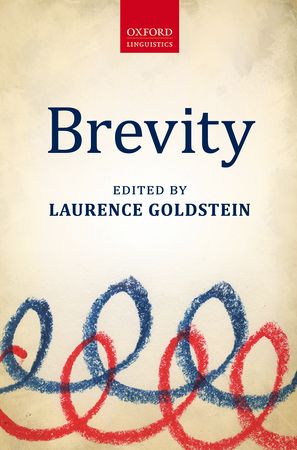Oxford University Press has just published a new work edited by Laurence Goldstein, Professor of Philosophy, entitled Brevity. The work brings together distinguished linguists, philosophers and cognitive scientists to deliver interdisciplinary perspectives on conversation, shedding new light on how people talk.
The book brings conversation into prominence as both a multifaceted topic of deep philosophical importance and a phenomenon that serves as a testing ground for theories in linguistics, psycholinguistics, and computer modeling. Brevity is achieved in a variety of ways. Speakers use elliptical constructions and exploit salient features of the conversational environment in a process of pragmatic enrichment so as to pack as much as possible into a few words. They take account of what has already been said in the current and previous conversations, and tailor their words to what they know about the beliefs and personalities of the people they’re talking to. Most of the time they do all this with no obvious mental effort.
Brevity is the product of an interactive multidisciplinary research project that extended over four years. The questions dealt with concern how speakers secure understanding of what they mean when what they mean far outstrips the literal or compositional meanings of the sentences or sentence fragments that they use. It will appeal to linguists, philosophers, and psychologists at advanced undergraduate level and above.
For more details of the book from Oxford University Press, please see:
http://ukcatalogue.oup.com/product/9780199664986.do

